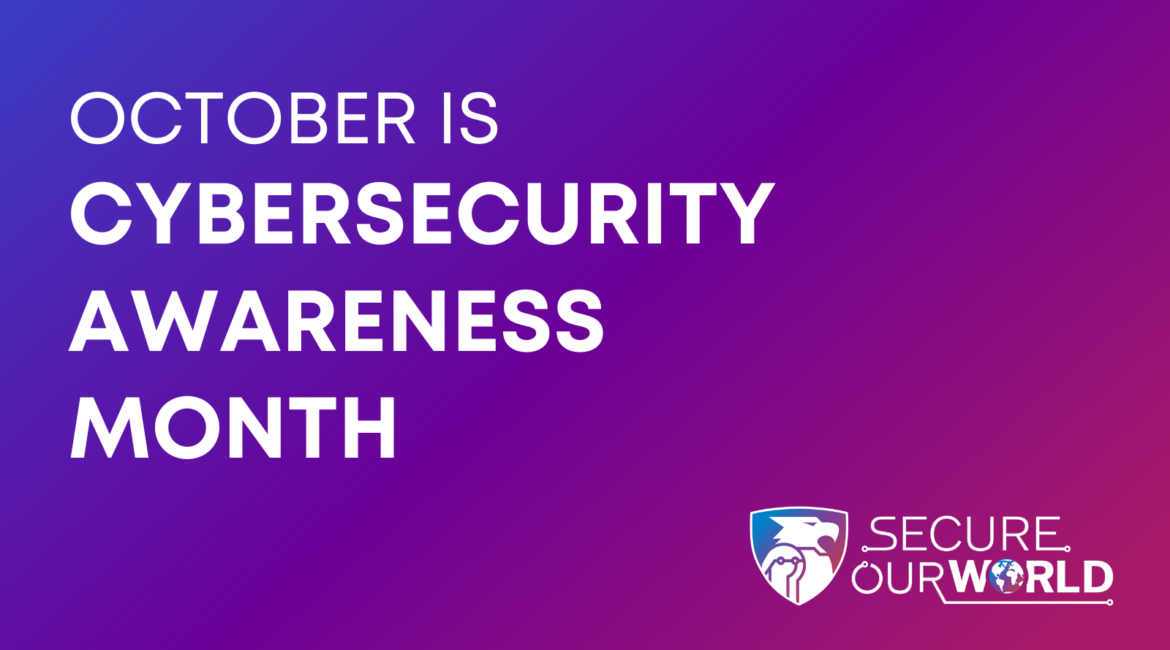In an era dominated by technology and interconnectedness, cybersecurity has emerged as a paramount concern for individuals and organizations alike. As we celebrate Cybersecurity Month, it is crucial to underscore the significance of this awareness campaign, particularly for small businesses. These enterprises, often lacking the resources of their larger counterparts, are just as vulnerable to cyber threats, if not more so. This blog post delves into the importance of cybersecurity for small businesses and offers insights on how they can safeguard their digital assets.
The Digital Threat Landscape:
The digital landscape has undergone a rapid transformation in recent years. The proliferation of smartphones, cloud computing, and the Internet of Things (IoT) has opened up new avenues for businesses to thrive. However, this digitization has also given rise to a plethora of cybersecurity threats. Malware, phishing attacks, data breaches, and ransomware have become household names, causing substantial financial losses and reputational damage.
Small Businesses in the Crosshairs:
Small businesses, though often overlooked, are prime targets for cybercriminals. These enterprises tend to have fewer cybersecurity resources and are perceived as soft targets. According to a report by Verizon, 43% of cyberattacks target small businesses. The consequences can be devastating, with many small firms struggling to recover after a breach.
The Importance of Cybersecurity:
Protection of Sensitive Data: Small businesses often handle sensitive customer data, financial information, and proprietary business secrets. Cybersecurity measures are essential to safeguard this information from falling into the wrong hands.
Reputation Management: A security breach can tarnish a small business’s reputation, eroding the trust of customers and partners. Implementing robust cybersecurity practices helps maintain credibility and trustworthiness.
Legal Compliance: Many industries have regulations mandating data protection and privacy. Small businesses that fail to meet these requirements can face legal consequences and fines.
Financial Security: The financial implications of a cyberattack can be crippling. Small businesses may struggle to recover from the financial losses associated with a breach.
Cybersecurity Best Practices for Small Businesses:
Employee Training: Educate your staff about cybersecurity threats and best practices. Human error is a common cause of breaches.
Firewalls and Antivirus Software: Install and regularly update firewalls and antivirus software to protect against malware.
Regular Updates: Keep all software and systems up to date with the latest security patches to address vulnerabilities.
Data Encryption: Encrypt sensitive data to ensure it remains confidential even if it is compromised.
Backup Data: Regularly back up your data to secure locations. This helps in case of data loss due to a breach.
Multi-Factor Authentication (MFA): Implement MFA for accessing sensitive systems or data. It adds an extra layer of security.
Incident Response Plan: Develop a plan for responding to security incidents. Quick action can minimize damage.
Third-Party Security: Assess the cybersecurity practices of third-party vendors and partners to ensure they don’t pose a risk.
Conclusion
Cybersecurity Month serves as a timely reminder of the critical role that cybersecurity plays in the success and survival of small businesses. These enterprises must recognize the threats they face and take proactive measures to protect themselves. By implementing robust cybersecurity practices and fostering a culture of security awareness, small businesses can navigate the digital landscape with confidence and resilience, ensuring a safer and more secure future for themselves and their customers.

